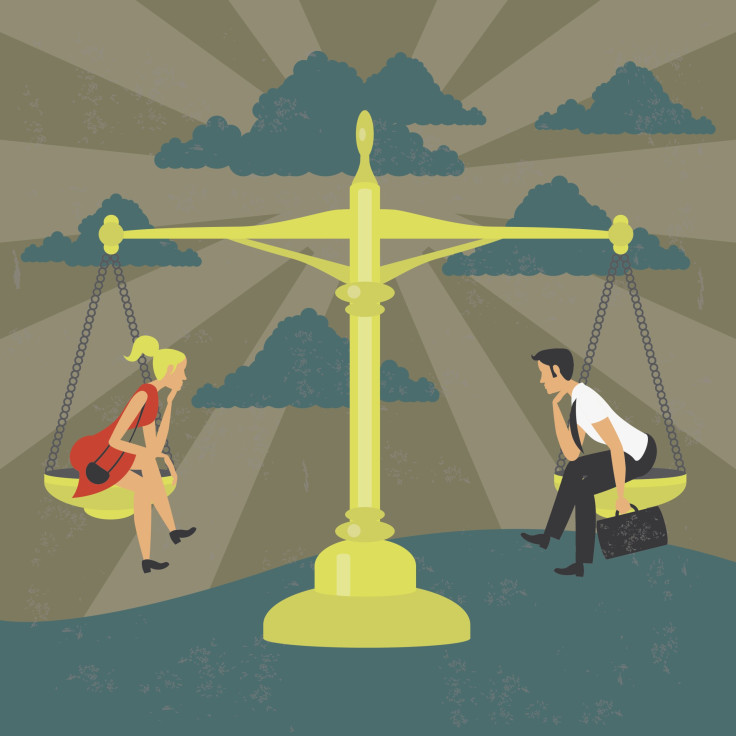Unmarried Women Are More Politically Aware, Concerned About Women's Empowerment

It makes sense: The single or unmarried woman is more likely to care about her career and making her own way in the world without relying on a man, while married women have traditionally carved their way into the world with a man at their side. The two groups have, in the past, diverged when it comes to political issues: Unmarried women are more liberal, while married ones are more conservative, and there's a variety of reasons for that. But a new study suggests that this gap is best explained by "linked fate," or a sense of female solidarity unmarried women feel in advancing women's status in the world.
The study, completed by researchers at Oregon State University and the University of Melbourne, was presented at the 110th Annual Meeting of the American Sociological Association (ASA) this weekend. It found that unmarried women are more likely to feel that their individual success relies a lot on women’s status in society as a whole, as a collective group. The researchers used data from the 2010 American National Election Study (ANES), comparing responses about political attitudes from married, never married, divorced, or widowed women over the age of 18. They found that married and widowed women shared similar political beliefs, while unmarried or divorced women were far more likely to have this sense of “linked fate,” or the idea that the collective status of women impacted their own lives.
“Over 67 percent of never married women and 66 percent of divorced women perceive what happens to other women as having some or a lot to do with what happens in their own lives,” Kelsey Kretschmer, co-author of the study and assistant professor of sociology at Oregon State University, said in the press release. “Only 56.5 percent of married women hold the same views.”
Interestingly, widowed women still shared more conservative political views about women’s status because they “are frequently older and never ruptured their relationships with their husbands by divorcing them,” Kretschmer explained in the press release. “They may still be receiving their husbands’ pensions, social security, or health benefits. In other words, despite not having a husband, many widows are still engaged in the marriage institution in ways that make them more like married women than never married or divorced women.”
The notion of linked fate can be applied to minority groups like African-Americans and Latinos, who are more likely to share political views/beliefs and vote for the same candidate due to sharing the same societal impact. The marriage gap in women delineates which women are connected to this female sense of linked fate.
This linked fate group of women is more likely to be concerned with things that impact all women — not just them individually — including wage equality, women’s rights in the workplace (maternity and pregnancy leave), and anti-domestic violence laws. “For a woman, when it comes to politics, having a high level of gender linked fate generally means she thinks in terms of what will benefit women as a group,” Kretschmer said in the press release. “Not every individual woman needs these things, but women who have a strong sense of gender linked fate will think in terms of how women as a group will benefit from them.”
The question that remains is whether being single or married is better for your health. This is a debate that is different for everyone, but research has shown that marriage is good for your heart health, mental health, and longevity — as your spouse is often likely to push you to take care of yourself. The only health advantage that single people, generally speaking, have over married couples is a lower likelihood to gain weight and become obese.
Perhaps the new study contributes to this discussion, as politically aware and active women can benefit mentally, emotionally, and physically from empowering themselves and others. And of course, you don’t have to be single to empower yourself or married to do so, either.
Source: Kretschmer K, et al. 110th Annual Meeting of the American Sociological Association. 2015.



























